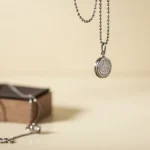Emerging Sustainable Materials and Technologies in UK Women’s Fashion
In the UK, sustainable materials are reshaping women’s fashion by reducing environmental impact while maintaining style and quality. Leading brands are increasingly adopting bio-based fabrics derived from natural sources such as bamboo, organic cotton, and plant-based fibers. These materials offer a renewable alternative to conventional textiles and contribute to lowering carbon footprints.
Innovative textiles play a crucial role in eco-tech fashion UK. Technologies like fabric made from recycled plastic bottles and regenerated fibers are gaining traction, allowing designers to create garments without excess waste. Brands integrate these textiles alongside cutting-edge production methods that minimize water and energy use, showcasing a genuine commitment to sustainability.
In parallel : How is the UK high street adapting to changing women’s fashion needs?
New biodegradable and low-impact fabrics are also entering the market, enabling clothing to break down naturally after use. These advancements demonstrate how the fashion industry can balance environmental responsibility with consumer demands. By investing in these eco-friendly materials, UK women’s fashion not only supports sustainability but also encourages environmentally conscious choices, making style and planet-friendly practices go hand in hand.
Circular Fashion Initiatives and Practices in the UK
Circular fashion in the UK is gaining momentum through innovative textile recycling UK programs and zero-waste brands dedicated to sustainability. Take-back schemes have become increasingly popular, allowing consumers to return used clothing for recycling or resale. These initiatives not only reduce landfill waste but also encourage a more responsible consumption of women’s fashion.
In the same genre : What Are the Most Anticipated Trends in Women’s UK Fashion for the Upcoming Season?
Resale platforms play a crucial role by offering pre-loved garments, extending the lifecycle of fashion items and promoting reuse over disposal. For example, many UK-based platforms specifically focus on women’s fashion, providing accessible and affordable options for eco-conscious shoppers.
Independent UK labels are also pioneering zero-waste design principles, crafting collections that minimize fabric waste during production. These zero-waste brands often employ innovative cutting techniques and repurpose offcuts, contributing to a more circular fashion ecosystem. The combination of these initiatives in textile recycling UK and sustainable design is setting new standards, encouraging the fashion industry to rethink its impact and embrace circular economy values.
Notable UK Designers, Brands, and Collaborations Advancing Sustainability
The UK sustainable designers scene is flourishing with creatives dedicated to reducing environmental impact. Designers like Stella McCartney have long set a benchmark by integrating eco-friendly materials and ethical production methods. Beyond individual efforts, prominent fashion brand partnerships in the UK are driving innovation by combining resources to develop sustainable textiles and circular business models.
Collaborations between established and emerging brands are pivotal for scaling sustainable practices. For example, joint ventures often focus on biodegradable fabrics or implementing zero-waste manufacturing techniques. These initiatives reflect a collective commitment among eco-fashion leaders UK to transform the industry’s footprint.
Moreover, sustainability certifications such as GOTS (Global Organic Textile Standard) and B Corp accreditation bolster transparency and consumer trust. Industry-wide pledges in the UK enhance accountability and motivate brands to meet or exceed eco-conscious standards, further strengthening the impact of these designers and collaborations. This synergy between innovation, partnerships, and certification propels UK sustainable fashion forward.
Consumer Trends and Ethical Fashion Movements
Sustainable consumer trends UK reveal a growing insistence on transparency and verifiable eco-certifications. Shoppers now frequently seek brands that openly share their supply chain details and demonstrate commitment to reducing environmental impact. This shift is evident in the surge of ethical fashion demand, where consumers prioritize pieces manufactured through responsible practices.
In the green fashion UK scene, these changes reflect a broader cultural movement valuing environmental stewardship and social responsibility. For example, many women now prefer sustainable women’s fashion over conventional fast fashion, considering factors such as material sourcing, durability, and fair labor standards before purchasing.
This evolution in purchasing habits highlights a conscious choice: to support brands that align with personal values and contribute to a healthier planet. As ethical fashion demand continues to rise, retailers respond by offering clearer eco-certification labels and cultivating transparency, thus empowering consumers to make informed decisions.
The intertwining of sustainable consumer trends UK and green fashion UK points toward a future where ethical considerations become integral to the fashion industry’s DNA.



